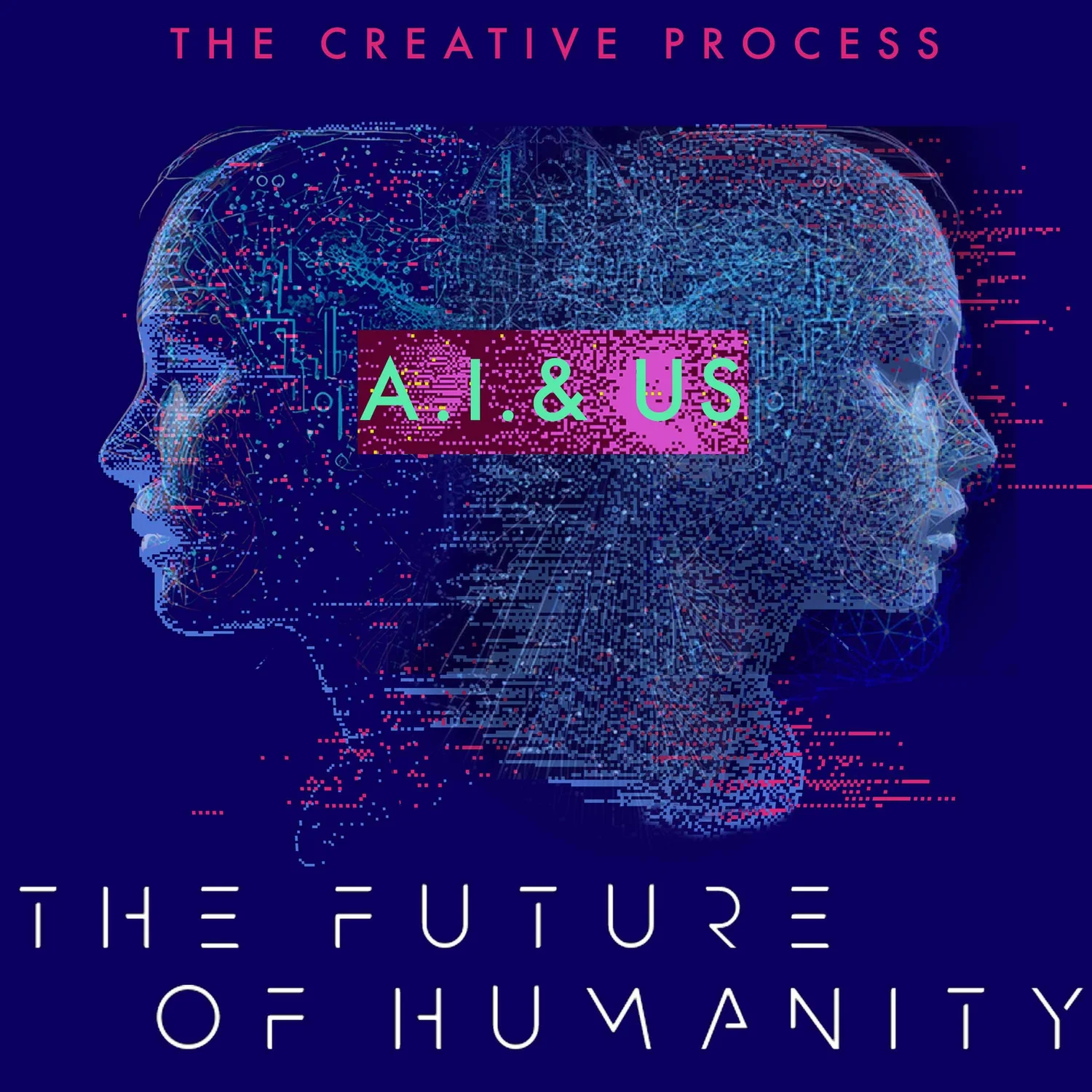
AI, Technology, Art & Culture - Artists, Philosophers, Economists & Scientists discuss the Future

AI & The Future of Humanity: Artificial Intelligence, Technology, VR, Algorithm, Automation, ChatBPT, Robotics, Augmented Reality, Big Data, IoT, Social Media, CGI, Generative-AI, Innovation, Nanotechnology, Science, Quantum Computing: The Creative Process Interviews
Deep Dive
What is the central argument of Daniel Susskind's book regarding technological progress and growth?
Technological progress drives growth, but we have a choice in shaping its nature. We can develop technologies that enhance prosperity without damaging the environment or widening social inequalities.
Why does Arash Abizadeh believe social media algorithms pose a threat to democracy?
Algorithms prioritize engagement by amplifying outrage and fear, which conflicts with the need for a healthy, deliberative public sphere required for sustaining democratic institutions.
How does Debora Cahn feel about the impact of AI on society?
She toggles between apprehension and optimism, drawing parallels to her father's experience with nuclear technology and the unpredictable transformation of the internet.
What does Julia F. Christensen argue about AI's influence on aesthetics in the arts?
AI drives creators toward superficial beauty conforming to popular standards, fostering an obsession with perfection fueled by dopamine signals and cluttering the mind.
What is Julian Lennon's perspective on AI's potential in the medical field?
He is optimistic about AI's role in advancing medical treatments and cures, highlighting recent advancements that are already making a positive impact.
What does Brian David Johnson emphasize regarding the role of humanity in technological development?
He stresses the importance of maintaining a human-centric approach, questioning the purpose of technology and urging developers to consider its impact on humans.
How does Debora Cahn reflect on the unpredictability of world-changing technologies?
She acknowledges the unpredictability of such technologies, likening them to the internet's unforeseen transformation into a shopping mall and expressing humility about predicting their future impact.
What does Julia F. Christensen say about the neuroscientific impact of AI-driven aesthetics?
She explains that the pursuit of AI-generated perfection triggers dopamine signals, teaching the brain to constantly seek superficial beauty and cluttering the mind.
What does Brian David Johnson ask when discussing artificial intelligence?
He questions what developers are optimizing for and why, emphasizing the need to consider the human impact beyond personal gratification.
What does Julian Lennon highlight as the most inspiring aspect of AI?
He points to AI's potential in the medical field, where recent advancements are paving the way for novel treatments and cures.
- Technological progress is the key driver of economic growth.
- Technological advancements can be directed to reduce environmental damage and social inequalities.
- The current trajectory of technological progress needs reevaluation to mitigate potential adverse effects on future working lives.
Shownotes Transcript
How can we shape technology’s impact on society? How do social media algorithms influence our democratic processes and personal well-being? Can AI truly emulate human creativity? And how will its pursuit of perfection change the art we create?
Daniel Susskind) (Economist · Oxford & King’s College London · Author of Growth: A Reckoning · A World Without Work) shares insights on the nature of growth driven by technological progress. He contends that while technology can accelerate growth, its impacts can be consciously directed to reduce environmental damage and social inequalities. According to Susskind, the current trajectory of technological progress needs reevaluation to mitigate potential adverse effects on future working lives.
Arash Abizadeh) (Professor of Political Science · McGill University Author of Hobbes and the Two Faces of Ethics · Associate Editor · Free & Equal) explores the ethical tensions between democratic needs and commercial imperatives of social media platforms. He highlights how algorithms designed to maximize engagement often foster outrage and fear, contrasting these commercial objectives with the requirements for a healthy democratic public sphere.
Debora Cahn) (Creator & Executive Producer of Netflix’s The Diplomat starring Keri Russell & Rufus Sewell · Exec. Producer Homeland · Grey’s Anatomy · Vinyl · Co-Producer The West Wing) toggles between apprehension and optimism about emerging technologies like AI. She reflects on her father's experience with nuclear technology and ponders the unpredictable impacts of AI, drawing parallels with the unforeseen transformation of the internet.
Julia F. Christensen) (Neuroscientist - Author of The Pathway To Flow: The New Science of Harnessing Creativity to Heal and Unwind the Body & Mind) examines the rise of AI and its influence on aesthetics in the arts. She argues that technology drives creators towards superficial beauty conforming to popular standards, thereby cluttering the mind and fostering an obsession with perfection fueled by dopamine signals.
Julian Lennon) (Singer-songwriter · Documentary Filmmaker · Founder of The White Feather Foundation Photographer/Author of Life’s Fragile Moments) discusses AI's potential in the medical field, highlighting recent advancements that are paving the way for novel treatments and cures. While acknowledging the importance of copyright issues, he remains optimistic about AI’s positive impact on healthcare.
Brian David Johnson)** **(Author of The Future You: How to Create the Life You Always Wanted · Director of the Arizona State University’s Threatcasting Lab Futurist in Residence · ASU’s Center for Science & the Imagination) emphasizes the importance of maintaining a human-centric approach to technology. He questions the purpose behind technological advancements, urging developers to always consider the human impact and clarify their objectives.
To hear more from each guest, listen to their full interviews).
Instagram:@creativeprocesspodcast)